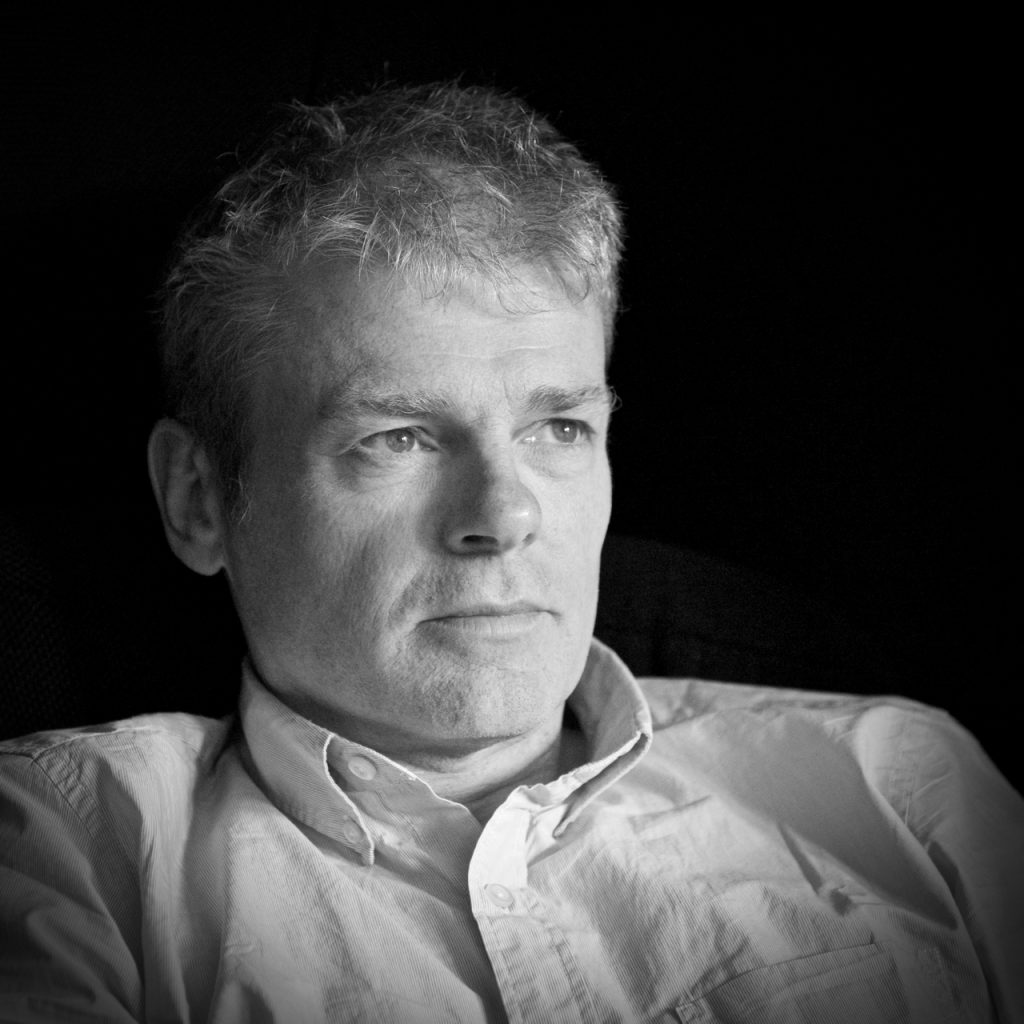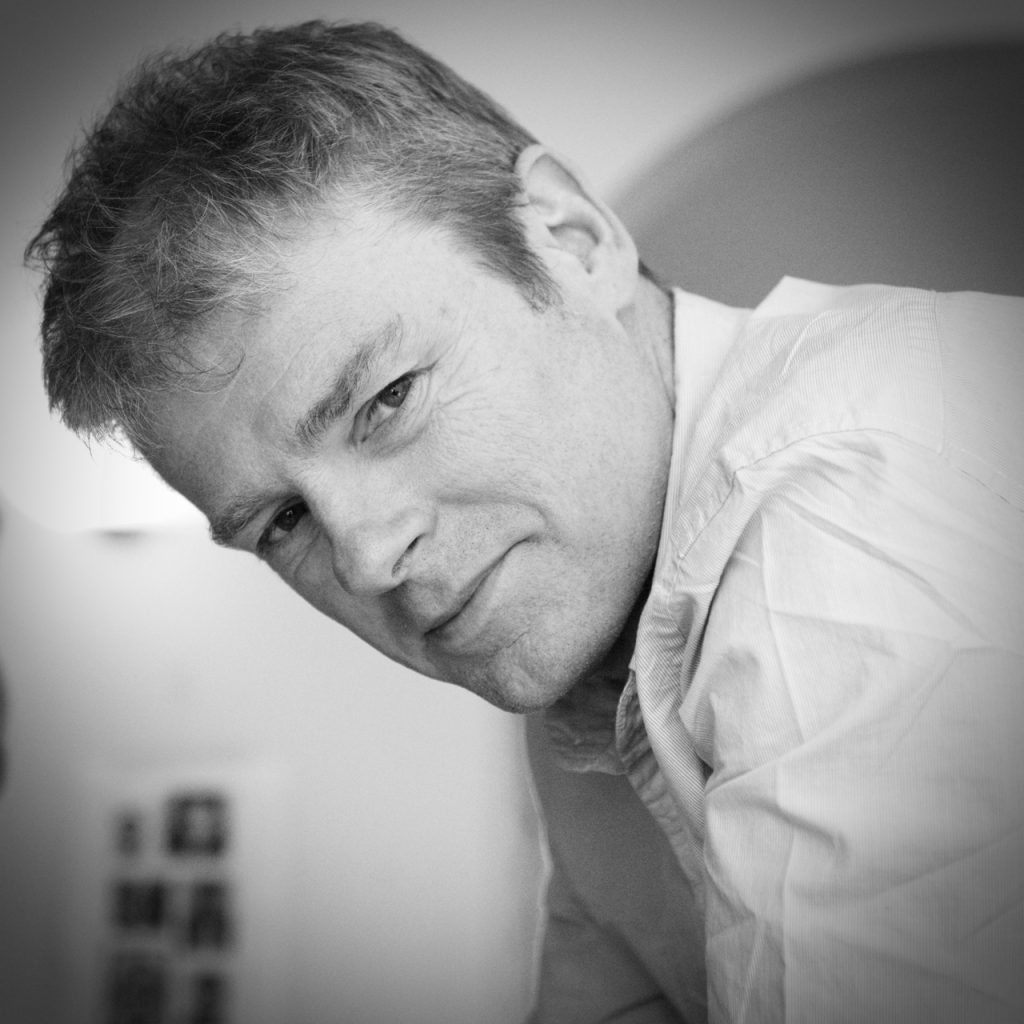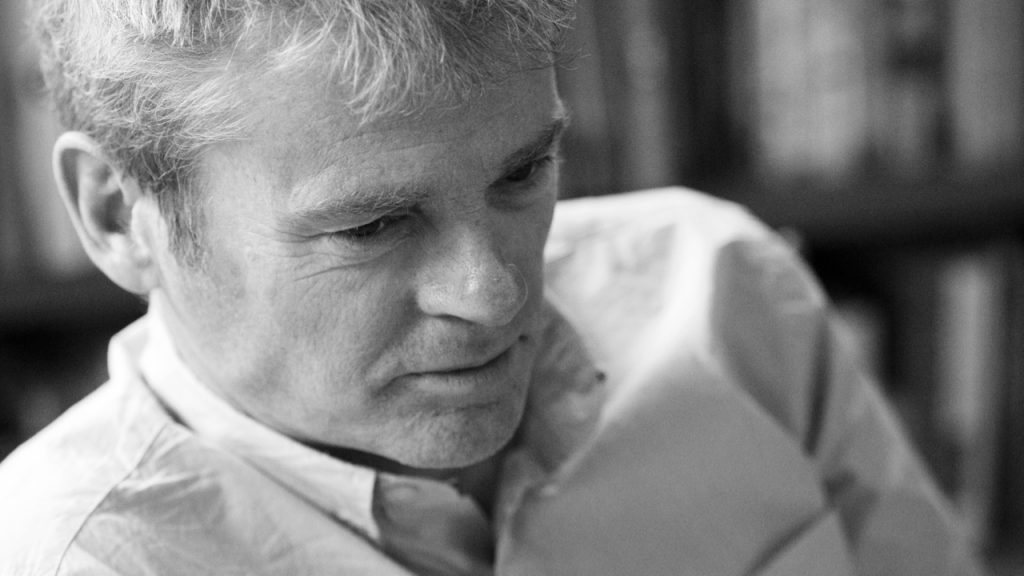It came anything but naturally, writing his collection of short stories Pier collapses. Mark Haddon, made famous with The miraculous incident with the dog in the night, novels go a lot easier. I've been trying to write short stories for a long time, and I knew I should be able to do it, but I never succeeded. It was like a puzzle - I had to solve it.'
Dog Towers
British writer Mark Haddon (b. 1962) was already successful as a children's book and screenwriter when, in 2003, he became known worldwide in one fell swoop with his novel The miraculous incident with the dog in the night. The tragicomic book, with an autistic first-person narrator, was translated into 40 languages, won 17 literary prizes and found its way to 10 million (!) readers. It was also adapted into an equally successful and critically acclaimed play, which has been running in London since 2012. A mega-success, then, to which Haddon owes, among other things, his beautiful house in Oxford, which he humorously named Dog Towers. I am very grateful for it, although I wouldn't mind not talking about the book for about ten years.
While success brought him freedom, it did not bring him much peace of mind, he says in his bright studio, which is full of portraits and other artworks - because when Haddon is not writing, he is drawing and painting. 'Writing for me is the same as eating, breathing or running - it's part of who I am. When I am not writing or making art, I feel like a dog that is not being walked.'
Struggle
In the room are two tall stacks of copies of The Pier Falls and other stories. One is a tower of beautiful bound copies for Amazon.com, the other a stack with the special edition illustrated by Haddon himself for bookshops, so that not íneveryone buys only on the internet. Haddon leans back contentedly in his reading chair, against a cushion with the same striped cover as the special edition. Pier collapses is his first collection of short stories.
The chances of it becoming a bestseller are slim - the novels An inconvenience and The red house did not match the success of The miraculous incident -, but in England, America and other countries where the collection has been published, the reviews have been very positive. A few stories from the collection have even won awards. A great ending to a struggling writing journey, Haddon explains. 'I have been trying to write short stories for a long time, and I knew I should be able to do it, but I never succeeded. It was like a puzzle - I had to solve it.'
Why he insisted on writing stories? Haddon raises an eyebrow. 'Probably because I was struggling with a new novel?' he laughs. 'All that matters to me is that the story works, and if I have to switch to a different genre to do that, then I will. The story "The Island" was first a long, narrative poem. Three others started as a theatre piece. It didn't make sense. Eventually it became clear what the right form was, but it would have been nice if those stories had whispered that to me a bit earlier.'
Working hard
Usually the Brit does not enjoy writing that much. 'It's hard work. I like having written more than the writing itself. Writing is like climbing a mountain. The view from the top is spectacular, that's the reward, but it's not easy to get there. I cannot do things halfway; if the result is not good enough in my eyes, I get pissed at myself. A lot of it I throw away. With my collection of short stories, at least 30 stories died. This is my way of working and I am happy with the result, but it is not efficient or pleasant. Every time I sit down to write I need more than an average amount of self-confidence to muster.'
And so that is the beauty of short stories, he laughs: they are short. 'You can just throw them away if you don't like them, and it doesn't cost you a year of your life like with a novel. This allowed me to take more risks, to try out more things in plot and setting. So I could have one story set in the jungle and another on Mars.'
Compassion for the underdog
At Pier collapses very different people and situations therefore pass by. There is the story of fat man Bunny, who is disowned; a man abandoned by his wife who rescues a young lady from the weir into which she tried to drown herself; a woman who lives as one of the guinea pigs on a distant planet; and a group of adventurers who go into the jungle to search for missing explorers. A motley mishmash of characters and settings.
'I am fascinated by landscapes, houses and families, and by the human spirit, people with mental health problems. That is reflected in everything I write, as is compassion for the underdog. There always has to be a certain friction, otherwise you don't really see how that character's mind works. Besides: without conflict, nothing happens. Many short stories that I have read myself and found not so successful revolve around someone who something happens to them. In that, atmosphere and descriptions are most important. Personally, I like things to happen, for there to be action and friction in a story. In that sense, I feel more akin to stories from the early nineteenth century, which often contain an element of suspense, adventure or even horror.'
Just as Mark Haddon loved 'disappearing' into the poster of the universe in his room as a child, many of his characters also seem to find themselves in another world, literally or figuratively. Haddon nods affirmatively. 'While everyday life, houses, objects and normal people are my starting point, I then seek access to the weird zone, another place that is at once near and far. That's what reading is all about, right? To access another world? If you have to choose between one or two worlds, do me two. It is wonderful to find yourself in another reality for a while. And it is 'best when you are completely immersed in that world, while at the same time enjoying how beautifully it is written.'
It's safe to say that the stories in Pier collapses are rather dark. In almost all of them, at least one person dies. Haddon laughs. 'But without death there is no fiction, nor any value in existence. Things have value only because we are mortal and nothing lasts forever. We fail, experience loss, things change and disappear. If we were all handsome, had eternal life, could do anything we wanted, were Greek gods, we would be bored to death, don't you think? It would probably be fun for a week and then we'd go stark raving mad.'
Pier collapses was published by publisher AtlasContact.




